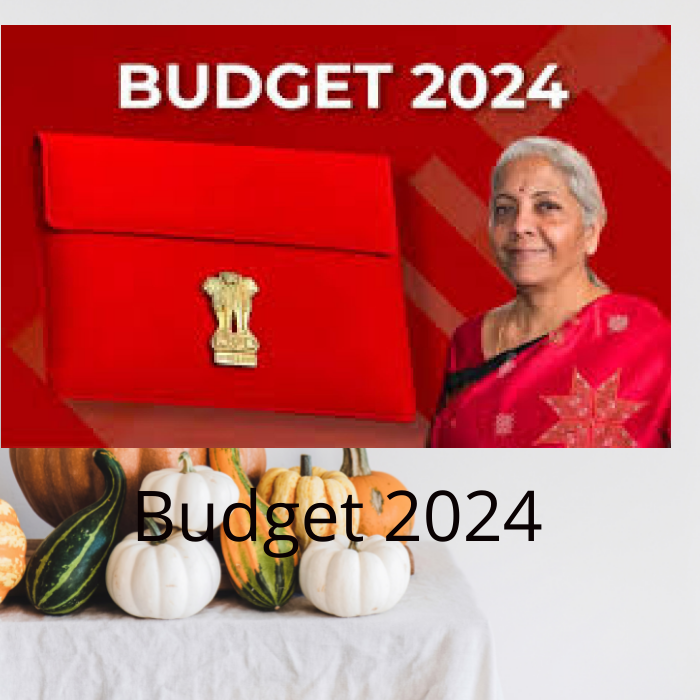Budget 2024
Facts regarding the 2024 Interim Budget that you should be aware of:
Interim Budget 2024: The Central Government’s 2024–2025 Interim one is ready for implementation. This usually acts as a financial safety net to keep the government operating until a new one takes over. Starting on January 24, 2024, with the ‘Halwa’ ritual, the short-term plan tradition was established. This article will assist you in comprehending the financial particulars of the most recent fiscal year under the government of Narendra Modi.
An interim one: what is it?
A government’s short-term financial strategy is called an interim one. It replaces the entire budget if there is a short window of time until the next Parliament or general elections. The government uses this one to help pay for necessities and keep the lights on during the first few months of the fiscal year.
Temporary 0ne 2024: Time & Date
Its documents will be instantly accessible via the mobile application on February 1, 2024, following the Finance Minister’s conclusion of the its speech in Parliament. The most recent official notification states that on February 1, 2024, at 11 AM, the Interim Budget for the fiscal year 2024–2025 would be presented. As it reveals the government’s plans for revenue and spending for the next fiscal year, this is a big event in India’s economic calendar.
Key Dates to Keep in Mind:
January 24, 2024: Ceremony of Halwa
January 31, 2024: Start of the budgetary session
The Finance Minister will present the Interim onet on February 1, 2024.
First of April, 2024: Budget meeting comes to an end.
May–June 2024: New fiscal year begins

What distinguishes a complete one from an interim budget?
When presenting the interim one, the current administration frequently emphasizes the need for spending and the continuation of current policies. It doesn’t introduce any noteworthy new initiatives or policy changes because it is only seen as a stopgap measure.
On the other hand, the regular budget is a comprehensive financial plan that is made public every year and includes the government’s revenue, spending, and policy priorities for the upcoming fiscal year.
.
Why is the Interim Budget being presented by Finance Minister Nirmala Sitharaman?
Finance Minister Sitharaman is proposing the interim budget because it is an election year, not to change policy, but to create a strategy to deal with any financial obstacles. FM Sitharaman stated that there would be no “spectacular announcements” in the Interim Budget in December during a business program. She made it clear that before the general elections, the main focus would be on financial responsibility.
After receiving approval from Parliament, the government would be able to take out proportionate amounts of money from the Consolidated Fund of India to cover its expenses for the months of April through July.
Fascinating Information regarding Budget Sessions
It was during the third term of the Modi government in 2014 that Nirmala Sitharaman assumed the position of Finance Minister.
Following in the footsteps of his predecessors, Arun Jaitley moved the budget presentation from the last working day of February to the first day of February.
The second female minister to submit the budget is Nirmala Sitharaman, following Indira Gandhi, who did so for the 1970–71 fiscal year.
Instead of using a conventional budget briefcase, FM Sitharaman decided to symbolically carry the speech and other documents in a “Bahi-Khata” emblazoned with the national emblem.
its under the Modi administration and Sitharaman’s sixth onel is the Interim Budget for 2024.
Sitharaman is the second Finance Minister to submit six consecutive this, following Morarji Desai.
Inverting the previous record held by Yashwant Sinha, Arun Jaitley, Manmohan Singh, and P. Chidambaram, Sitharaman is the first female Finance Minister to serve a full term and present five one in a row.
Youth, women, farmers, and the impoverished have been singled out by Prime Minister Narendra Modi as groups that need to be empowered. According to Sitharaman, the administration wants to give these groups more influence without taking their caste, community, or religion into account. “Sitharaman emphasized the imperative need for enhanced support towards the advancement of youth, women contributing to food security, deserving farmers, and the unfortunate poor, in order to propel progress on this significant occasion.”
The Central one, which contains the most important financial information for the year, and the Economic Survey, which looks at the nation’s economic performance over the previous year, are among the papers that the government will make public.
